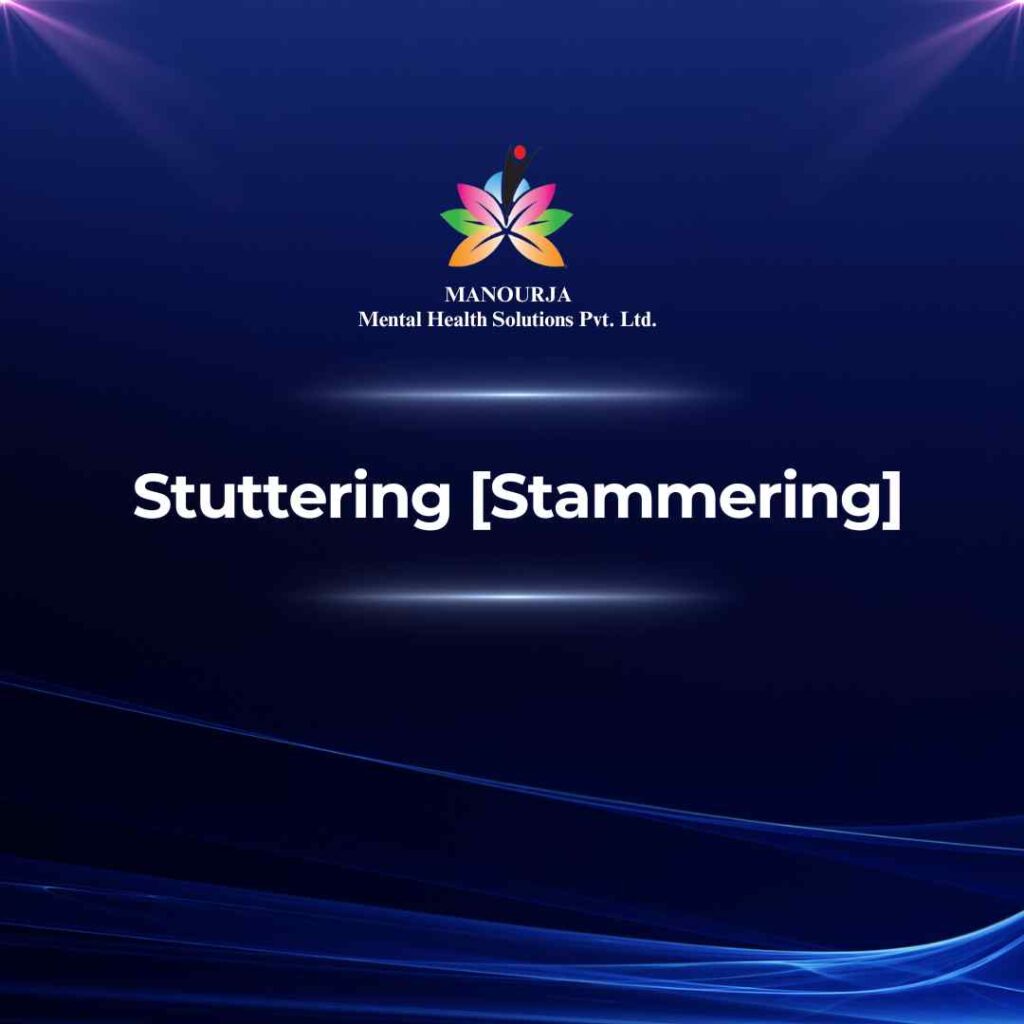Stuttering [Stammering]

Stuttering, or stammering, is a speech disorder involving disruptions in the normal flow of speech. These disruptions, called disfluencies, often include repetitions of sounds, syllables, or words; prolongations of sounds; and interruptions in speech known as blocks. Stuttering can affect anyone but most commonly begins in childhood, affecting early developmental stages of speech and language learning.
Symptoms of Stuttering
- Repetitions: The most recognizable characteristic of stuttering is the repetition of parts of words, especially at the beginning of speech. For example, a person might say, “W-w-w-where is my book?”
- Prolongations: This occurs when a sound is elongated, such as “Ssssssometimes I go out.”
- Blocks: These are inappropriate stoppages in the flow of speech where the sound doesn’t come out at all even though effort is being made to speak.
- Physical Tension: Stuttering might be accompanied by visible physical tension or struggle behaviors, such as blinking rapidly or lip tremors when trying to speak.
- Avoidance Behaviors: Many individuals who stutter may develop avoidance behaviors to prevent stuttering, such as using different words, pausing frequently, or pretending to forget what they were about to say.
Forms of Stuttering
Stuttering can be categorized into a few types, reflecting its nature and timing:
- Developmental Stuttering: The most common form that starts in early childhood when speech and language skills are developing rapidly. This type can be influenced by genetic factors, as it often runs in families.
- Neurogenic Stuttering: Caused by damage to the brain from events like stroke, traumatic brain injury, or other neurological diseases, leading to disruptions in the brain signals involved in speech production.
- Psychogenic Stuttering: Although rare, stuttering can sometimes begin suddenly in adulthood due to psychological stress or trauma, though this is less common and less understood than other forms.
Treatment of Stuttering
Treatment strategies for stuttering vary depending on the age of the individual, the severity of the stutter, and the impact it has on their ability to communicate and participate in daily activities.
- Speech Therapy: The primary treatment for stuttering is speech therapy, which helps to improve speech fluency through various techniques. Speech therapists work on strategies such as controlled fluency, slow speech, and proper breathing techniques.
- Cognitive Behavioral Therapy (CBT): For older children and adults, CBT can help manage the psychological aspects of stuttering, such as fear of speaking and anxiety, which can exacerbate stuttering.
- Electronic Devices: Some devices feed back the speaker’s voice directly into their ear with a slight delay or altered frequency, helping some people improve their fluency.
- Parent-Child Interaction Therapy: For very young children, guiding parents on how to interact with their child can help reduce stuttering. Techniques include reducing the pace of life around the house, spending quality, relaxed time with the child, and speaking in a slow, relaxed manner.
- Self-help Groups: Participating in support groups where individuals share experiences and coping strategies can also be beneficial.
- Educational Interventions: Educating teachers and classmates about stuttering can create a supportive environment that reduces the stress of speaking in academic settings.
Effective treatment often involves a combination of these methods, tailored to meet the individual’s needs. Many people who stutter manage to significantly reduce their stuttering impact on daily life with the right support and intervention. Early intervention, especially in childhood, offers the best outcome.
At MANOURJA, we believe in the transformative power of counseling. Our experienced therapists offer a safe and supportive space where you can explore your thoughts, emotions, and challenges. Through personalized counselling sessions, we’ll work together to develop coping strategies, build resilience, and achieve lasting positive change. Discover the path to a healthier, happier you with MANOURJA counselling services.
MANOURJA Rehabilitation Services
At MANOURJA, we’re dedicated to helping you in rebuild your life, after difficult times. Our rehabilitation services focus on understanding what you need to move forward, whether you’re recovering from addiction, trauma, or any psychological – social challenges. We create personalized plans, that are all about helping you, regain your strength and find hope again. With a caring team by your side, you’ll have the support to make real progress and take steps toward a brighter, healthier future.
